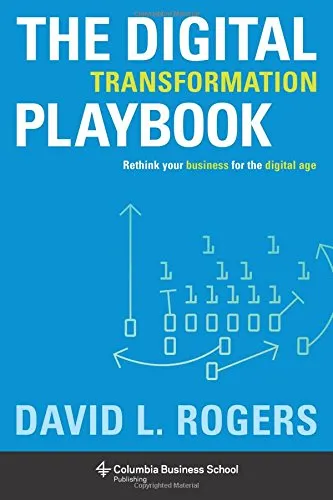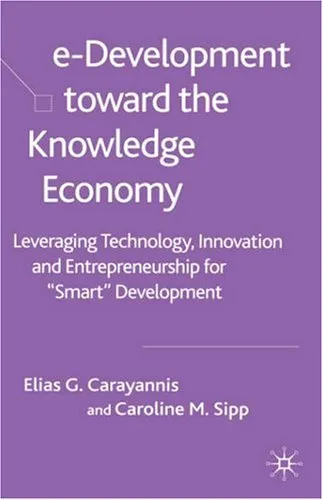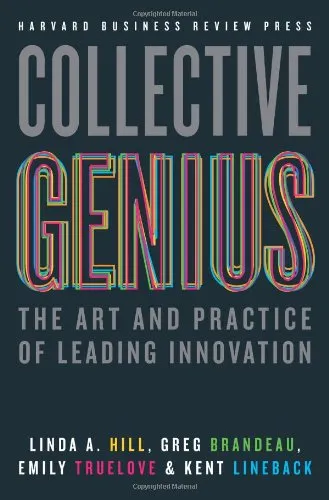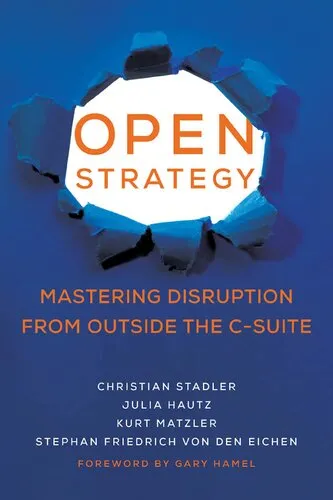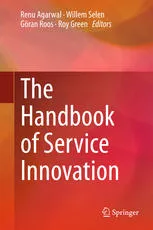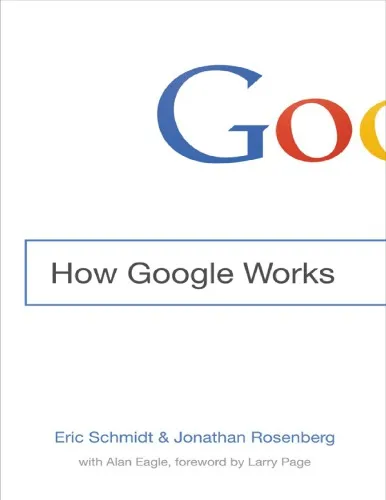Cambridge Handbook of Open Strategy
4.5
Reviews from our users

You Can Ask your questions from this book's AI after Login
Each download or ask from book AI costs 2 points. To earn more free points, please visit the Points Guide Page and complete some valuable actions.Related Refrences:
Introduction to the Cambridge Handbook of Open Strategy
The "Cambridge Handbook of Open Strategy" is a pioneering work that delves into the evolving landscape of strategic management in the digital age. Edited by renowned scholars David Seidl, Georg von Krogh, and Richard Whittington, this comprehensive guide offers an in-depth exploration into how openness—in terms of data, collaboration, decision-making, and implementation—reshapes traditional practices in strategy.
Detailed Summary
Open Strategy represents a shift from traditional closed practices to ones that incorporate external knowledge and stakeholder engagement. This volume brings together thought leaders and cutting-edge research to explore the implications of openness in strategic processes. The book covers a broad spectrum of topics, ranging from the role of digital technology in strategy formation to collaborative platforms and crowdsourcing methods that organizations use to innovate and solve complex strategic challenges. Each chapter presents case studies, theoretical insights, and practical frameworks that underscore the importance and challenges of adopting an open approach.
The editors have structured the book into distinct thematic sections, each focusing on critical elements of openness in strategy. These sections address various dimensions, including the integration of external stakeholders, open innovation and platforms, and the impact on organizational culture and structure. By encapsulating diverse perspectives, the book provides a holistic view of how organizations can unlock opportunities through openness, drive competitive advantage, and adapt to the rapidly changing business environment.
Key Takeaways
- The shift towards open strategy is driven by technological advancements and the increasing need for agility and innovation.
- Open Strategy leverages external resources, creating opportunities for co-creation, crowdsourcing, and inclusive decision-making.
- Adopting Open Strategy requires changes in organizational culture, emphasizing transparency, collaboration, and trust.
- Firms that implement open strategies effectively can achieve superior innovation outcomes and sustainable competitive advantages.
- Challenges include managing strategic tensions, protecting intellectual property, and ensuring democratic decision processes.
Famous Quotes from the Book
“In a world where the boundaries of organizations are increasingly porous, strategy itself has to become more open.”
“Open Strategy acknowledges that valuable insights and solutions often exist outside traditional organizational confines.”
“The openness of a strategy enlarges the strategic conversation, taps into collective intelligence, and fosters innovation.”
Why This Book Matters
The "Cambridge Handbook of Open Strategy" is an essential read for scholars, business leaders, and policy makers seeking to understand and leverage the dynamics of open strategy in contemporary business environments. As organizations face unprecedented challenges and opportunities, this handbook serves as a vital resource to navigate the complexities of openness and its transformative potential.
By providing a unique blend of theoretical insights and practical applications, the book emphasizes the strategic importance of integrating external knowledge and stakeholders into the strategy-making process. Furthermore, it addresses the evolving role of technology in facilitating openness and presents actionable frameworks to implement open strategies successfully.
Ultimately, the book underscores the significant impact that open strategies have on shaping the future of business strategy and sustainable organizational success. It invites readers to reconsider traditional views on strategy and explore novel approaches that align with the demands of the digital and networked world.
Free Direct Download
You Can Download this book after Login
Accessing books through legal platforms and public libraries not only supports the rights of authors and publishers but also contributes to the sustainability of reading culture. Before downloading, please take a moment to consider these options.
Find this book on other platforms:
WorldCat helps you find books in libraries worldwide.
See ratings, reviews, and discussions on Goodreads.
Find and buy rare or used books on AbeBooks.
1423
بازدید4.5
امتیاز0
نظر98%
رضایتReviews:
4.5
Based on 0 users review
Questions & Answers
Ask questions about this book or help others by answering
No questions yet. Be the first to ask!

